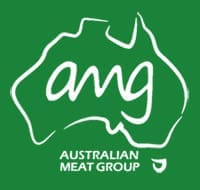SOUTHERN beef processor Australian Meat Group has received confirmation of China market access for the company’s large Dandenong beef facility in Victoria.
Official confirmation came through the Chinese regulatory channels this week.
 Dandenong becomes the first new Australian red meat processor to gain access to the China market since 2017.
Dandenong becomes the first new Australian red meat processor to gain access to the China market since 2017.
The plant was one of about 15 beef and/or lamb processing facilities which have had applications for China access – in some cases made six or seven years ago. COVID disruptions and a strained government-to-government relationship along the way have delayed that process.
It’s important to make a clear distinction between the AMG Dandenong development, and the re-admission of five Australian beef export plants to the China market in May (click here to view earlier story). Those plants already held China licenses, but were suspended, over a variety of mostly unusual regulatory or food safety concerns.
In contrast, AMG Dandenong (AusMeat establishment number 3085) represents new capacity, having never previously had access to China, and becoming a new player in the China market. It’s understood the approval received this week is for both chilled and frozen beef, plus offal.
Phones start to ring
Australian Meat Group managing director Gilbert Cabral told Beef Central the company’s phones had started to ring from potential Chinese customers immediately after Chinese authorities posted the new listing.

Gilbert Cabral, AMG
He said the addition of China would broaden the company’s customer base, and was now evaluating how best to approach the new market.
While AMG has some Chinese equity invested in its business, this was not considered to be a factor in gaining access, Beef Central was told.
AMG Dandenong is a modern export plant, currently processing around 1000 head per day, with ultimate capacity around 1300/day. It kills quality chilled and frozen grain and grassfed beef, cold-boned, for domestic and export markets. Most of the product goes into retail or food service sectors.
Mr Cabral thanked the Chinese authorities and the Department of Agriculture and Forestry in Canberra for their efforts in helping secure access for Dandenong.
He said the company had continued to work with the Chinese authorities over the license issue.
“It’s been quite a long process, with many amendments over the years, but we’ve kept working at it,” he said.
“There’s been many modifications and updates since the original application was made, mostly to do with description, documentation and wording,” he said. “We had to work very hard to get the application correct.”
There had been no need to make capital investments in the plant (only nine years old) to meet Chinese regulatory requirements.
Mr Cabral said it was the company’s intention to also gain China access for the company’s Cootamundra beef plant in New South Wales, re-opened in January this year and currently in a phase-one stage killing around 500 head per day. A China access application for Cootamundra was made last year.
There has been no indication at this stage whether other Australian beef and lamb plants that have earlier applied for China access are likely to follow this week’s Dandenong approval.
AMIC sees positive outcome
The Australian Meat Industry Council, representing red meat export and domestic processors, noted last month’s visit to Australia by Chinese Premier Li Qiang, suggesting this was all part of a relationship rebuilding exercise between the two countries that has contributed to the Dandenong listing.
During his visit, Premier Li Qiang discussed trade and other bilateral topics with Australian Prime Minister Anthony Albanese during historic meetings in Canberra.
“Additionally, AMIC and DAFF have both recently made visits to China to speak with government and regulatory personnel, and trade associations,” the council’s chief executive Patrick Hutchinson said.
“This is the outcome of a strong relationship – a normal business-as-usual process – that is occurring with China – just as it happens with any other export market around the world,” Mr Hutchinson said.
“It’s the culmination of a long process, and we are very happy this is occurring, because it is showing the true nature of this new relationship.”
“Premier Li’s recent Australian visit was a part of this. This is the last piece of the puzzle in the China Australia trade relationship, and the recognition of getting back to business as usual.”

HAVE YOUR SAY